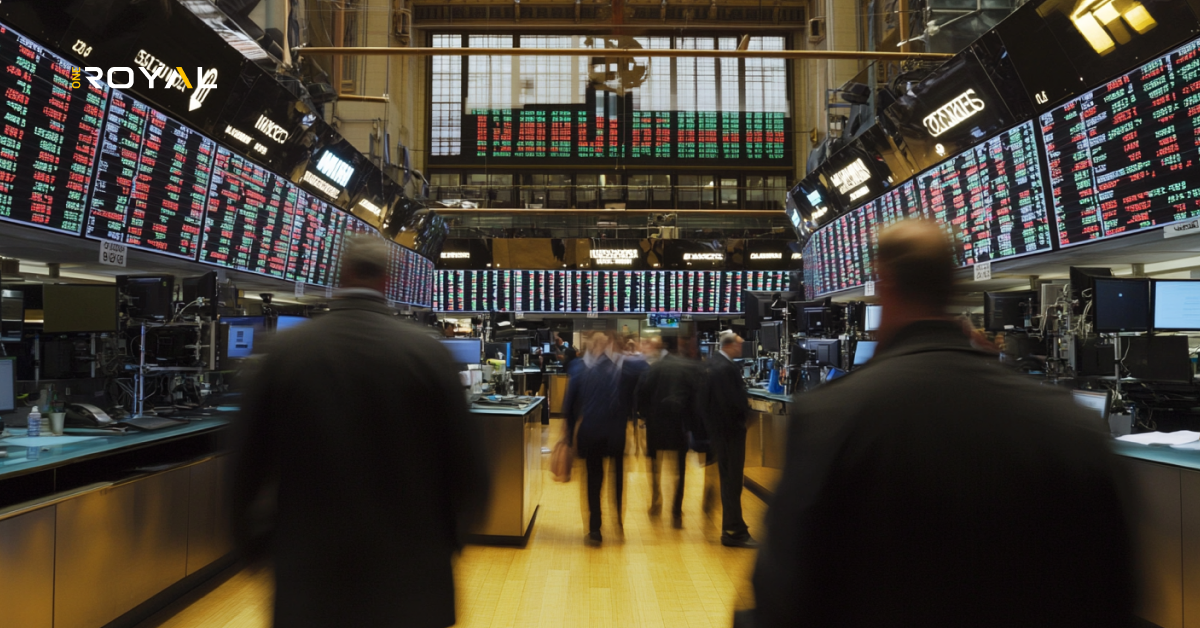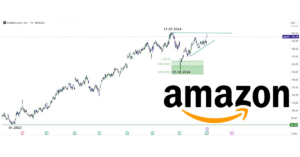US Indices Fall Collectively
US indices recorded a collective decline at the close of Wednesday’s session, pressured by technology stocks. Also, fears of tightening the monetary policy by the US Federal Reserve have grown. Federal Reserve officials said yesterday, Wednesday, that more interest rate increases are on the table to support the Fed’s efforts in controlling inflation. However, none suggested that the strong January jobs report could lead to stricter policy action.
US stocks recorded gains after Federal Reserve Chairman Jerome Powell stated that interest rates might need to move higher than expected if the US economy remains strong. However, he said he feels that the easing of inflation is underway.
The Dow Jones index closed lower, below levels of 34,000 points. The energy sector topped the list of losers after declining by more than 2%, under pressure from Chevron stock. On the contrary, the healthcare sector was the only winner in the period. The S&P 500 index declined by 1.1% in Wednesday’s session closing at 4,117 points. The Nasdaq Index fell by 1.7%, recording the most considerable daily losses since the beginning of February, to close below 12,000 points. The decline was led by the technology sector, which fell by more than 2% after Alphabet fell by 7.7%.
Japan’s Nikkei closed lower, following Wall Street.
Japan’s Nikkei closed lower on Thursday, February 9, retreating from its highest level in nearly two months. The benchmark tracked the weak performance on Wall Street after investors had long been skeptical of higher upcoming US interest rates. The earnings season witnessed a mixture of winners and losers among the major companies. After solid quarterly profits, Teijin and Pacific Metal shares recorded an increase of about 6% each. In comparison, Fujifilm shares fell by 2.38%.
The Nikkei index ended trading down by 0.08% to 27,584.35 points but hovering above the 27,500 level it had previously recorded in late January. The Topix index rose 0.05% to 1985.00. Toyota Motor rose 0.18%, recouping early losses after the company reported a surprising 22% increase in operating profit for the third quarter.
In Wall Street, the Philadelphia Semiconductor index fell 2.2%. The decline also hurt the Japanese stocks related to chips, as Tokyo Electron shares of chip-making equipment fell 2.14%, trimming 34 points from the Nikkei index, making it the biggest loser on the index. The chop testing equipment manufacturer “Advantest” followed Tokyo Electron, falling 1.18%.
The Dollar Steadies After Falling from its 1-Month High.
The dollar hovered near the average prices it recorded against a basket of currencies during the last period. The dollar index, which measures the performance of the US currency against six other currencies, fell 0.13% to 103.32. The drop happened from its one-month high at 103.96 which it had reached on Tuesday, supported by the NFP report that showed the labor market is still stronger than expected. Employment data initially reinforced expectations that the Federal Reserve may return to its hawkish monetary policy. However, Powell did not give any signals that support more monetary tightening in his comments. Investors are also closely awaiting consumer price inflation data due Tuesday for clues about the policy outlook.
The euro rose 0.18% to $1.07325, off a one-month low of $1.067 hit on Tuesday. The Japanese yen settled at 131.455 per dollar, while the pound sterling rose 0.1 percent to 1.2087 dollars. Investors are evaluating the comments of several Fed officials and anticipating consumer price inflation data scheduled to be published next week.
Oil Rises for the Fourth Consecutive Day
Oil rose in the early trading hours, extending its gains for the fourth consecutive day. The price increase was supported by crude loading disruptions in Turkey and optimism about continued demand recovery in China. Brent crude futures rose 14 cents, or 0.2%, to $85.26 a barrel. US crude futures rose 11 cents, or 0.2%, to $78.58 a barrel. Both benchmarks are up more than 6% this week.
BP Azerbaijan declared force majeure to load Azeri crude from the Turkish port of Ceyhan on February 7 after a strong earthquake struck Turkey and Syria early Monday. The disaster suspended operations at the Ceyhan port and disrupted crude oil supplies from Iraq and Azerbaijan.
Crude prices also received support from hopes for a quick recovery in demand from China. The world’s second-largest oil consumer ended its strict 3-year zero Covid policy. However, the increase in US crude inventories puts pressure on oil gains. Inventories rose last week to the highest level since June 2021, to 455.1 million barrels.
Disney Prepares to Discharge 7,000 Employees.
Walt Disney revealed that it would lay off 7,000 employees, becoming the latest major company to lay off employees as economic uncertainty mounts. The company said yesterday that this step is part of a major restructuring plan to save billions of dollars.
Disney plans to save $5.5 billion annually under the restructuring plan by cutting $1.5 billion in operating costs and another $3 billion in non-sports content cuts, including job cuts, according to the company filing. The share value rose in extended trading, after the announcement that the company beat Wall Street expectations with earnings of $0.99 per share, beating analysts’ estimates of $0.78.
Disney’s decision to lay off employees is the latest in major companies. Many corporations have announced thousands of layoffs in recent months, after Wall Street giants including Goldman Sachs, Alphabet, and Amazon.




